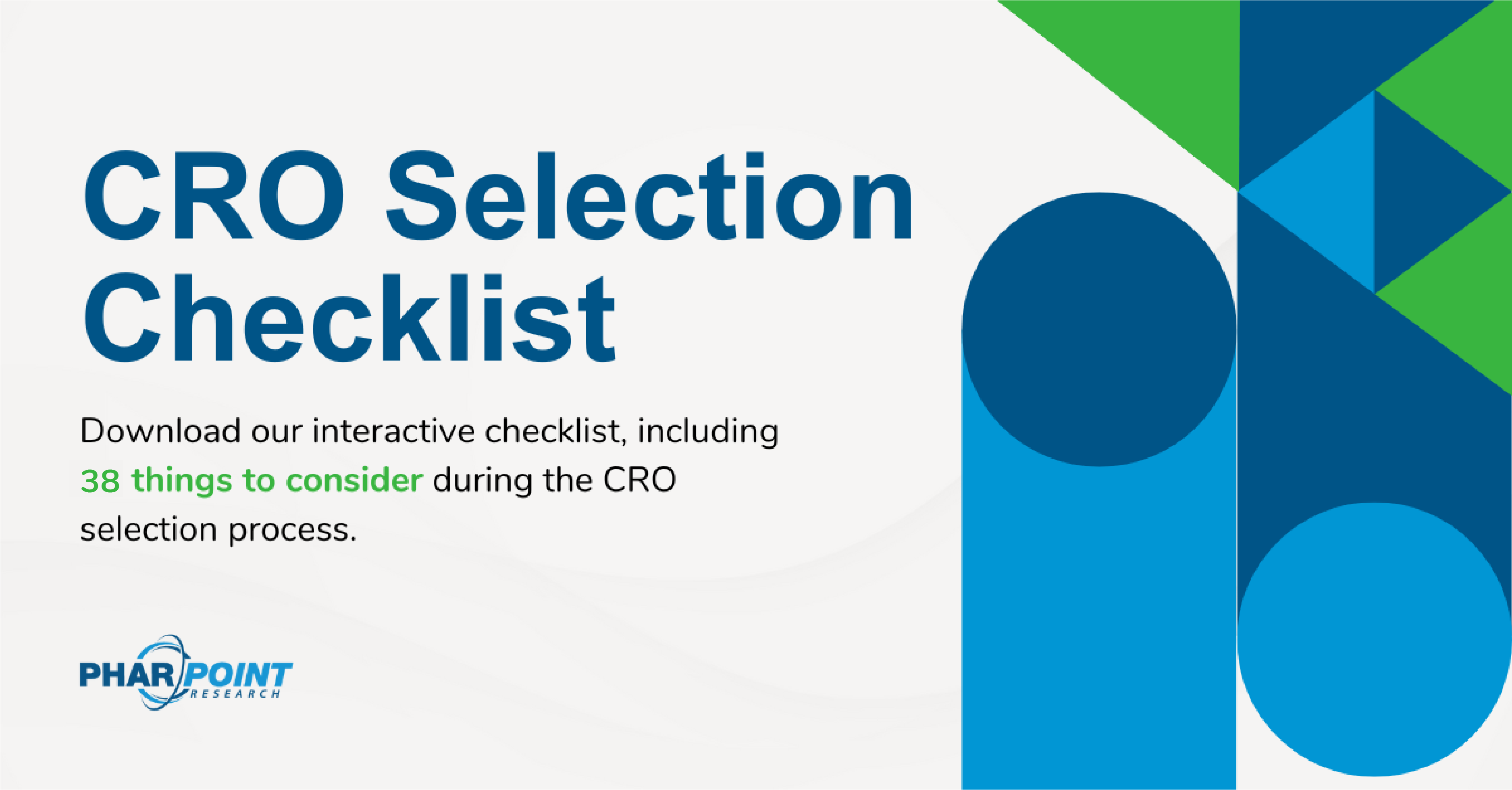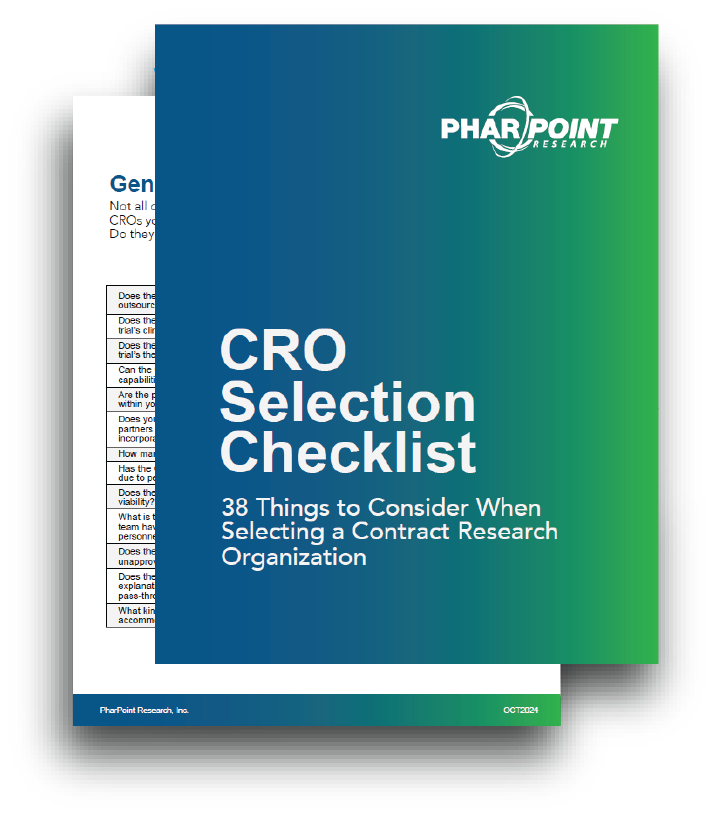GENERAL INFORMATION AND CAPABILITIES, INCLUDING:
The right services and expertise for your study needs
- Do the CROs capabilities cover your specific trial needs?
- Does the CRO have experience in your study phase?
- Are the study team members highly qualified and experienced within your therapeutic area or indication?
- Does the CRO offer an option for decentralized study capabilities and proactive solutions to decentralized clinical trial obstacles?
- How does the CRO work with a proactive approach that keeps your submission in mind from the start?
- Can the CRO create and provide custom SAS programming?
NOTE: During the submission process, the FDA requests programs for ADaM datasets as well as the programs for the efficacy output. When sponsors use proprietary compiled macros rather than custom programming, additional steps must be taken before review by the FDA or other regulatory agencies.
EVALUATING SOFT SKILLS AND CULTURE FIT, INCLUDING:
A company culture that matches your own
- Does the CRO provide clear communication on how they plan to stay within scope or expand scope only with explicit approval?
- Does the CRO practice transparent pricing, including a detailed explanation of service costs and thorough definition of pass-through costs?
- Does the CRO have an experienced business development staff with excellent and effective communication?
- Does the CRO offer clear escalation paths, including access to director and/or executive level personnel, if needed?
- Does the CRO use an approach that values and emphasizes what’s best for your study and your study’s patient population?
- Does the CRO place an emphasis on utilizing effective cross functional communication?
- Does the CRO have financial stability and long-term viability?
- Can the CRO provide examples of acting as a cohesive extension of a Sponsor’s team and partner dedicated to a Sponsor’s success?
- Can the CRO provide reference contacts who can verify former successful collaborations?
- Does the CRO have a thorough ethics approach, including both research and business ethics?
- Does the CRO demonstrate honesty and transparency as a core value?
EVALUATING REGULATORY COMPLIANCE, INCLUDING:
Documented high standards and regulatory compliance
- Does the CRO have a record of performing due diligence of vendors, with vendors selected based on stringent criteria and a thorough selection process?
- Does the CRO have an excellent history of audit performance and consistent high quality?
- Can the CRO provide a record of documented compliance with HIPAA, HITECH, the Privacy Rule, GDPR, and any other applicable law and regulation concerning patient confidentiality and data privacy?
- Can the CRO provide information and documentation on their high cybersecurity standards?
- Does the CRO have full regulatory compliance, including Part 11 compliance?
- Does the CRO use documented training programs for all staff?
EVALUATING TECHNOLOGY INFORMATION, INCLUDING:
The right technology to support your needs
- Can the CRO provide real time or as-requested access to CTMS reports?
- Can the CRO offer intelligent solutions that include current thinking of regulators to develop smarter, more efficient clinical trials?
- Does the CRO have an in-house team with certified database builders, allowing for shorter study timelines?
- Does the CRO have experience with best-in-class technology and e-platform solutions that are Part 11 compliant?
Ready to find a CRO that best fits your study needs?
Use the form below to download the full list of considerations in of our “CRO Selection Checklist” as you start your hunt.

